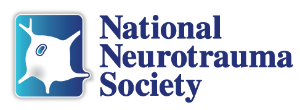Main Menu
Saturday Sessions
Sponsored by The National Institute of Neurological Disorders and Stroke and the Department of Defense, JPC-5 Military Operational Medicine
Chairs: Col. Dennis McGurk & Patrick Bellgowan
Box Lunch available ($) - pre-order only (Add ticket to your registration cart in the NNS Webshop to reserve)
Description
Both blast and head impact sensors have been available to researchers for over 10 years and have offered some insights into the biomechanics of brain injury, but they also have received criticism due to technical limitations. In the last few years, there has been significant progress in new technologies and analytical approaches, with varying degrees of validation testing. This symposium will provide an understanding of current sensor technologies and their utility for providing information regarding exposure of the human brain to external forces. The primary objective of this workshop is to update clinical and basic science researchers on the state-of-the-science of environmental sensors as used, both pre-clinically and clinically, to understand the diagnosis and prevention of brain trauma. The secondary objectives of this workshop are to provide information to the community regarding 1) the development of CDEs relevant to the collection of data from sensors, 2) sensor data sharing via the Federal Interagency TBI Research (FITBIR) informatics platform, and 3) the development of an inter-agency working group to focus on the potential for standards development and data sharing for sensor-related data.
Educational Objectives
At the conclusion of this symposium, all attendees will be able to:
- Describe the neuropathology related to exposure to head impact injuries and blast forces.
- Describe the types of sensors that are appropriate for measuring exposure to different types of forces.
- Discuss advantages and disadvantages of data obtained from various types of environmental sensors used for traumatic brain injury.
- Identify data standards and data reporting criteria when working with environmental standards.
- Network with leaders in the field of environmental sensors used for neurotrauma research, discovery, and treatment.
In addition to the learning outcomes for all attendees, at the conclusion of this symposium, students/trainees will also be able to:
- Identify suitable mentors for their personal and career development
- Identify human and tangible resources to promote their career advancement
- Identify major research fields, as well as related institutions and companies in which to find meaningful career opportunities and advancement.
What the Practicing Neurosurgeon Needs to Understand About Economics - Deborah Benzil, MD; Benzil Zusman Healthcare Neuroscience
Rising in the Ranks: Progress of Women in Neurosurgery - Stacey Quintero-Wolfe, MD; Wake Forest Baptist Medical Center
Description
This session will elucidate critical economic issues that can negatively impact practicing neurosurgeons, especially at the start of their careers. Real life examples will be used to illustrate the importance of understanding socioeconomic issues for career satisfaction and success.
Educational Objectives
- Elucidate the common socioeconomic pitfalls that impact practicing neurosurgeons
- Provide tactics to help navigate socioeconomic issues to lead to career satisfaction and long-term success
-
Comprehend the spectrum of skills needed especially for those entering into an employed position (where there is often the assumption of needing to know less)
Chairs: Mayumi Prins, PhD; UCLA and Patricia de la Tremblaye, PhD; University of Pittsburgh
- Michelle Theus, PhD; Virginia Tech
- Virginia Newcombe, PhD: University of Cambridge
- Patricia de la Tremblaye, PhD; University of Pittsburgh
Description
The Women in Neurotrauma Research – Visiting International Scholar Award (WiNTR-VISA) was established to promote international networking opportunities, and to advance the early careers of women Neurotrauma researchers. The Award provides an opportunity for international collaboration by subsidizing both travel to the National Neurotrauma Symposium and a brief period of research training/collaboration in a sponsor’s laboratory. This session will celebrate the 10 year anniversary of the WiNTR-VISA award and feature scientific talks presented by 3 previous recipients.
Educational Objectives
- Identify Neurotrauma’s efforts to increase gender equality in research
- Compare the experiences of past awardees and how research experiences in neurotrauma has impacted their careers
- Inform others about WINTR VISA and how individuals can get involved and participate
Sponsored by Medtronic
Neurosurgical Leadership Program - Shelly Timmons, MD, PhD; Penn State Health
Description
This session will discuss the fundamental aspects of leadership training as particularly focused on neurosurgical leadership. The session will highlight the importance of mentoring and creating a personalized strategy for career leadership development.
Educational Objectives
- Describe ways to create a personalized strategy for career leadership development
- Discuss strategies to improve the neurosurgeon’s efficacy as both a mentee and mentor
- Develop knowledge on mentoring platforms and their significance on leadership
Description
S'More Collaboration Campfire, a modern-day spin on how people have bonded for centuries, is designed to connect and engage attendees in thought-provoking conversations outside of the typical structured business setting. We are kickin’ it old school with a campfire and s’mores, of course!. If you are new to NNS, looking to make a few new friends or strengthen existing connections, this event is for you! Open discussion on a variety of topics.
FREE -Open to all attendees
Educational Objectives
- Exchange collaborative ideas for new approaches to neurotrauma
- Identify gaps in research and clinical care for neurotrauma
- Discuss methods of efficient collaboration in neurotrauma research
